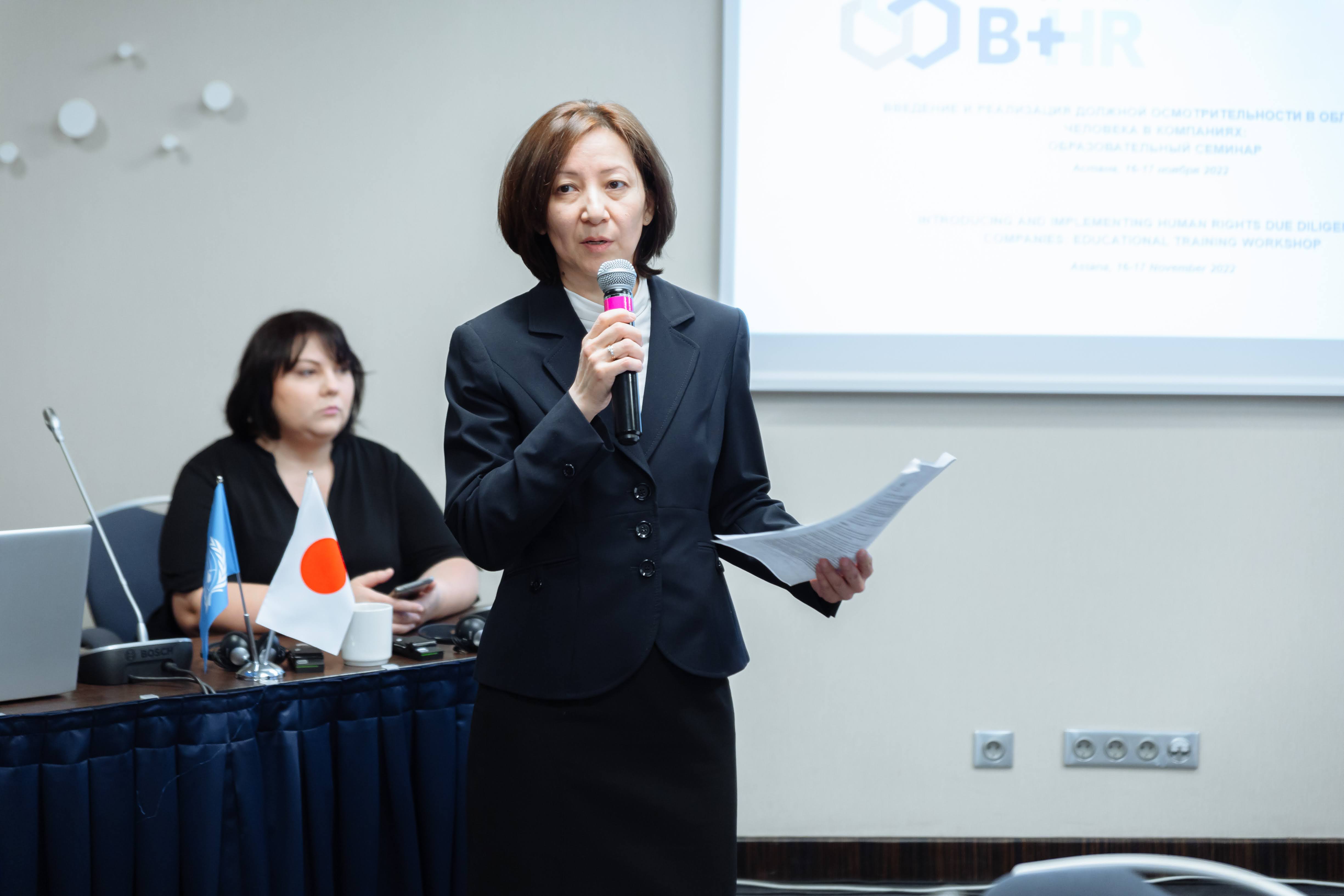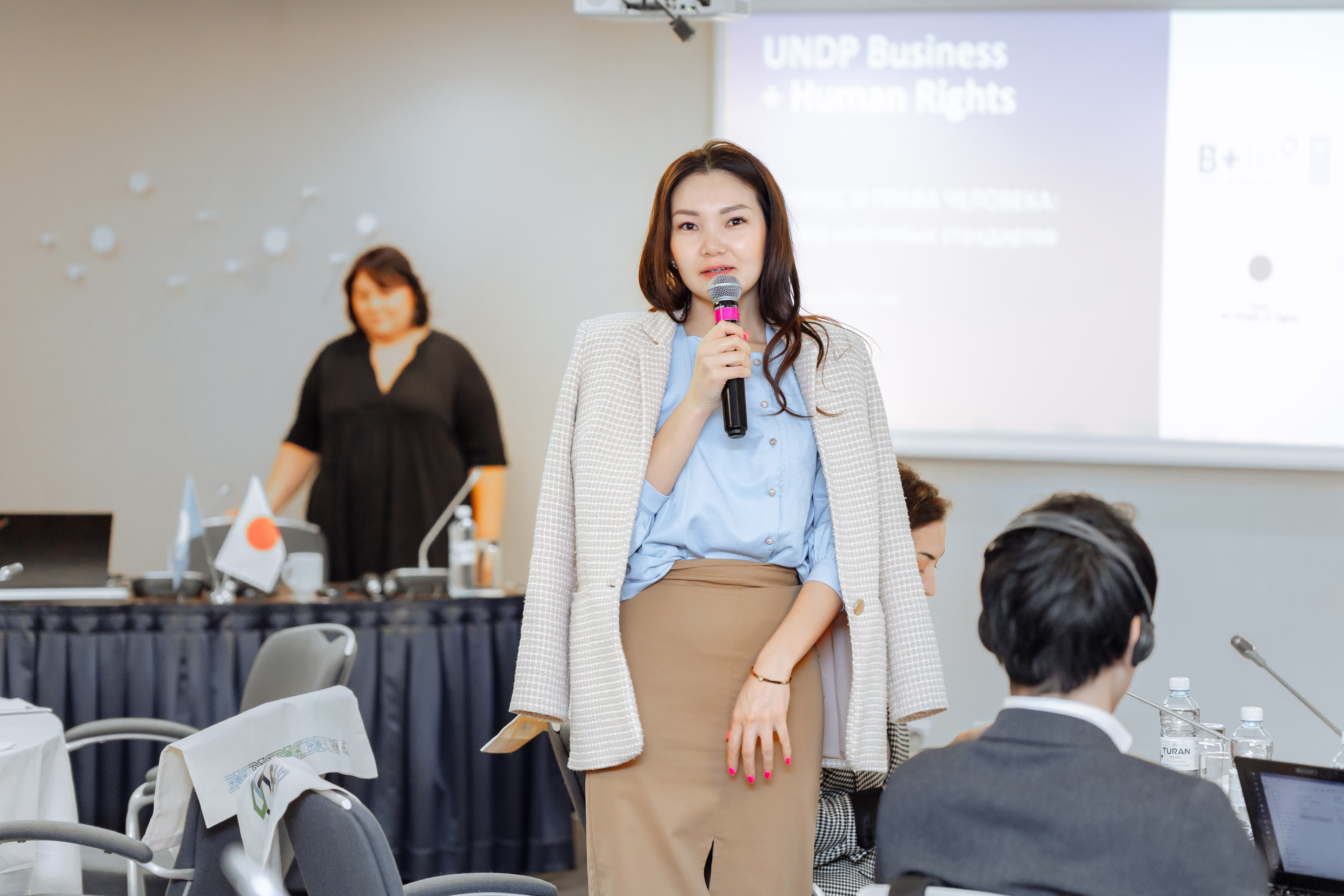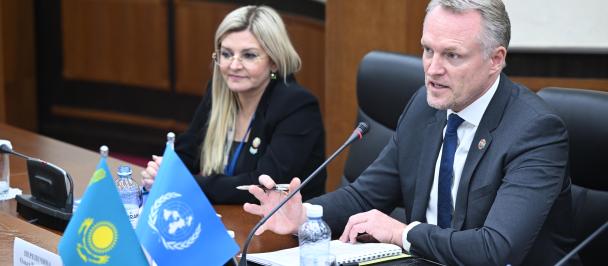Ensuring human rights in business as the basis for sustainable economic growth and development
December 27, 2022
Today, agenda of the human rights in business is gaining more and more importance and spread in the corporate sector around the world. Companies are increasingly relying on the principle of respect for human rights as a key element of corporate management. Respect for the rights of employees and the well-being of the local communities in which they work become a key element of corporate responsibility.

In 2011 the United Nations Human Rights Council unanimously approved the Guiding Principles on Business and Human Rights (UNGPs), which are a set of recommendations for states and businesses on the path to respecting human rights. Economies around the world that have adopted laws governing corporate human rights work include the United Kingdom with the Modern Slavery Act, France with the Corporate Due Diligence Act, Germany with the Corporate Due Diligence in Supply Chains Act, Norway, and many others. These laws require companies to identify, prevent and address potential negative human rights impacts.
After all, as practice shows, the absence of human rights legislation has the most negative consequences, including violence and death in the workplace. Such examples are related to the activities of companies in the Central Asian region. Among them is a high-profile case of systematic violation of human rights in the largest metallurgical company in Kazakhstan, where a number of cases of human rights violations have been recorded in recent years, resulting in damage to health and death of people.
The principles reflected in the procedure of the Human Rights Due Diligence (HRDD) prescribed by the UNGPs, if not exclude, at least minimize the risk of such situations that may cause moral and physical harm to human health and life.
Foreign companies increasingly feel the need to conduct HRDD from investors, their parent companies, as well as from international media. Against this backdrop, local companies have serious incentives to avoid risks to people and respect their rights, thereby reducing their own reputational and legal risks while maintaining their competitiveness in the market.

In 2022 UNDP together with the Government of Japan, came together to promote and develop business practices and respect for human rights in Japanese companies and their contractors on the ground. It is worth noting that Japan intends to develop the principles of The Human Rights Due Diligence in 17 countries of the world, including Kazakhstan.
One of the most important stages in the implementation of this initiative was the regional trainings on HRDD for Japanese companies, their Kazakh suppliers, and partners, which took place in three cities of Kazakhstan - Almaty, Astana and Atyrau. A total of 60 people attended the trainings, including representatives of companies, trade union organizations, government agencies and other organizations.
As HRDD is a new topic for Kazakhstan, a series of trainings in different regions of the country has shown that there is a serious gap in basic knowledge and understanding of human rights issues in the business environment. At the same time, many participants note the importance of the human rights agenda in running a responsible and competitive business.
Marina Tugambayeva, Compliance Officer of Samruk-Kazyna Ondeu LLP, said that participation in the trainings helps companies put the principles of respect for human rights into practice, which increases the reliability of companies and their value on the market.

Marina Tugambayeva, Compliance Officer of Samruk-Kazyna Ondeu LLP
"This year in the Code of Corporate Ethics of our company we have allocated a separate section on the observance of human rights and respect in the workplace. Considering the fact that the company carries out investment activities and works with foreign partners, including Japanese, for the first time we have introduced the practice of checking the business reputation of our partners in the field of human rights," she said.
During the training sessions, participants learned about the key UN Guiding Principles in the field of entrepreneurship and how due diligence helps companies ensure human rights both within the organization itself and in relation to local communities.


According to Aynash Sarsekeeva, Head Manager of the Strategic and Sustainable Development Department of Kazatomprom Company, a world leader in uranium production, respect for human rights in the workplace and in local communities is a sign of the company's reliability and a necessity for its sustainable development.

Aynash Sarsekeeva, Head Manager of the Strategic and Sustainable Development Department of Kazatomprom Company
"The issue of respect for human rights is a prerequisite on which the corporate policy of our company is based. Being the largest representative of the industrial sector in the world, we understand the need to comply with all accepted international UN principles in the field of human rights. Therefore, the UNDP trainings help to understand in more detail the norms of the due diligence policy in the field of human rights", she said.
Participants in the training sessions hoped that ongoing human rights activities would provide businesses with a new impetus and a practical understanding of how to increase their competitiveness in the marketplace and work for the good of society.
In turn, more than 70 percent of the participants noted that they intend to identify human rights risks, 50 percent are planning to integrate human rights risks into the internal policy of their organizations, and 25 percent - will develop, publish, or change the complaints mechanism.
It is worth noting that training sessions on conducting the Human Rights Due Diligence procedures were organized as part of UNDP project on promoting responsible business, generously funded by the Government of Japan.

 Locations
Locations









